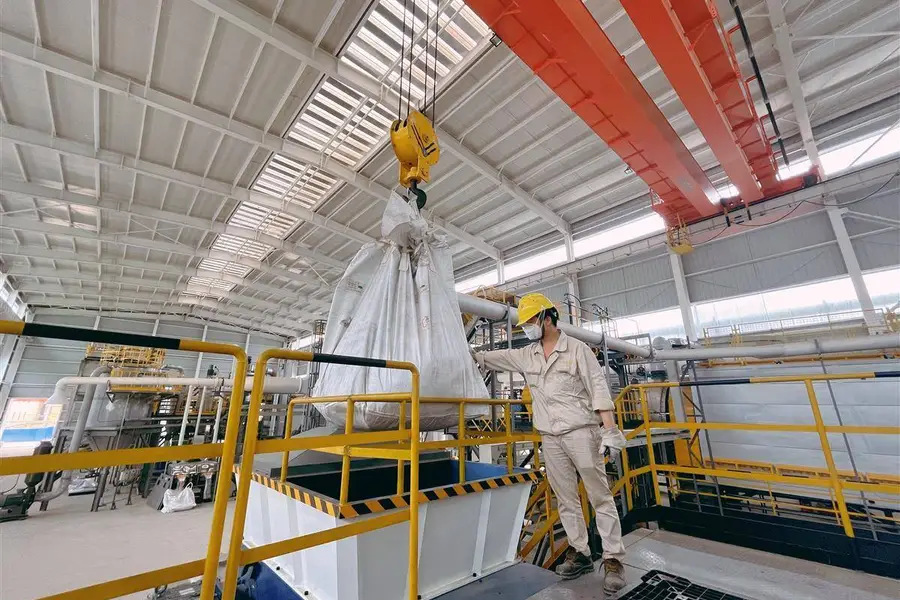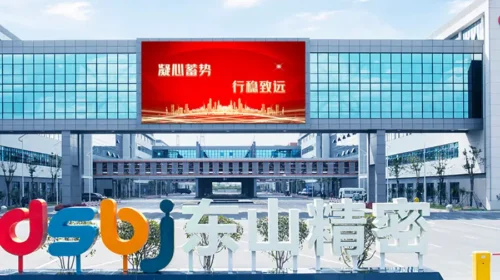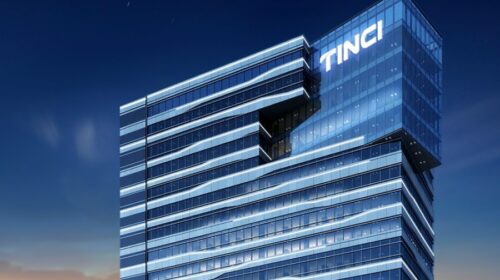Can dead batteries deliver a profit boost for recycler GEM?

The repurposer of key metals from electronic waste has filed to list in Hong Kong, looking set to benefit as millions of electric car batteries start to reach the end of their natural life
Key Takeaways:
- After a multi-year boom in Chinese electric vehicle sales, the car batteries are expected to enter a phase of large-scale retirement from 2026
- GEM recycled 22,400 tons of retired lithium-ion batteries in the first half of this year, a 37% year-on-year increase
By Lee Shih Ta
A discarded smartphone battery can be dismantled in a factory to salvage materials to power an electric car. This kind of regeneration is happening in Hubei, China, as the core business of GEM Co. Ltd. (002340.SZ).
The Shenzhen-based company specializes in a process known as urban mining, in which electronic waste is recycled for use in new products and battery packs. As far as GEM is concerned, the business is set for explosive growth as increasing numbers of batteries used in new-energy vehicles (NEVs) reach their expiry point.
These growth prospects form the basis of a pitch to investors as the company bids for a Hong Kong listing, potentially adding to a resurgence in the IPO market.
NEV batteries typically have a warranty period of eight years, which means a wave of battery swap-outs may be coming from next year, as China’s NEV sales first surpassed one million units in 2018.
GEM engages in both recycling and remanufacturing, which allows it to align with green standards and policies while staying shielded to some extent from fluctuations in raw material prices. It processes discarded batteries and scrap metals to produce high-end ternary precursors, the metallic compounds used in lithium-ion batteries, and cathode materials.
A study commissioned for the IPO application found that GEM was the world’s second-biggest supplier of ternary precursors in 2024, with a market share of 19.7%. In the business of ultrafine cobalt powder, the company has held the top global ranking for 12 straight years.
A supply chain “gold mine”
According to the study, the volume of China’s retired NEV batteries is projected to reach 2.3 million tons in 2030, when about 30% of the nickel, cobalt, and lithium for the batteries will come from recycling.
GEM was recovering and repurposing metallic compounds from battery waste as early as 2015, with its yields exceeding the industry average, and the company has gone on to secure partnerships with leading car and component companies such as CATL, BYD, Xiaomi and Geely. As a result, it could be poised to reap big rewards from tons of retired batteries.
Its earnings history reflects an expanding market. By 2024, GEM’s annual revenue had reached 33.2 billion yuan ($4.67 billion), more than tripling from 10.75 billion yuan in 2017. The company kept growing from 2022 to 2024, but the pace slowed to a compound annual growth rate of about 6%. Over the same three-year period, annual net profit was moderately volatile, coming in at nearly 1.30 billion yuan, 935 million yuan and 1.02 billion yuan.
Revenues edged up 1.28% to 17.56 billion yuan in the first half of this year from the equivalent period of 2024, but net profit rose 13.9% to 799 million yuan.
Gross margin rose from 14.5% in 2022 to 15.3% last year but slowed to 12.5% in the first half of 2025. The margin for new-energy materials was a modest 13.1% and the figure for lithium batteries stood at 10.1%.
According to the IPO application, the company’s volume of recycled power batteries rose 37.4% in the first half of the year to 22,400 tons.
In addition to its recycling activities, GEM operates mining projects to help provide a stable and increasingly self-sufficient supply of raw materials. The company’s Qing Mei Bang mine in Indonesia has an annual production capacity of 150,000 tons of Mixed Hydroxide Precipitate (MHP), used in battery manufacture.
The company also supplied 26,563 tons of nickel and 10,672 tons of cobalt from its own resources in 2024.
A solid-state future
GEM invests a big chunk of its profits in refining its technology and has built up more than 5,500 patents. It spent 510 million yuan on R&D in the first half of this year, an increase of 6.1% from the equivalent period of 2024 and accounting for about 64% of its net profit.
The investment is starting to bear fruit. The company has begun to mass-produce a new-generation product – a series of ultra-high-nickel core-shell ternary precursors. Meanwhile, lithium-rich manganese-based precursor materials have also entered the shipment stage, destined for consumer electronics, drones and robots.
These types of advanced cathode materials are highly competitive fields as the industry seeks to develop solid-state batteries that could ultimately replace traditional lithium-ion products.
While the potential is clear, the company’s problems are also evident, namely limited profitability. In 2024, the net profit margin was only about 4%, below the level associated with value-added technology companies. However, at the EBITDA level the margin stood at 12.4%, rising to 14% in the first half of this year, indicating a gradual improvement in earnings quality.
GEM is valued at around 38.2 billion yuan on the Shenzhen market, with a price-to-earnings (P/E ratio) of about 34 times – higher than the 17 times for Huayou Cobalt (603799.SH) and the 31 times for CNGR Advanced Material (300919.SZ) but below the 80 times for Ronbay New Energy (688005.SH). GEM’s Shenzhen share price has risen 19.6% so far this year.
Given that Hong Kong-listed stocks are usually valued 20% to 30% below their mainland equivalents, investors may be able to buy in at a lower price point.
Potential buyers should note that some of GEM’s solid-state battery materials have already been certified by customers, which could translate into success down the road, although the short-term financial benefit is limited.
The key question is whether the recycling pioneer can harvest the fruits of its investments and stand out from its competitors in the future.
To subscribe to Bamboo Works weekly free newsletter, click here






